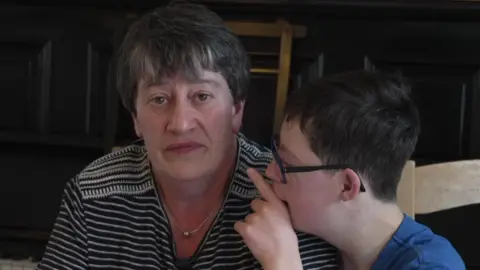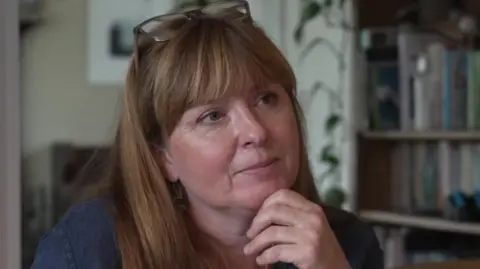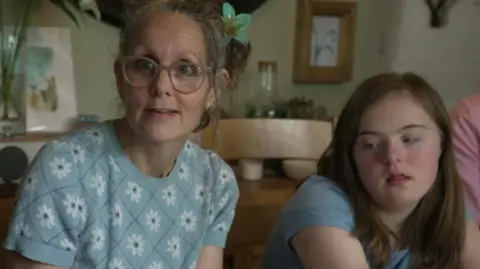SEND transport cuts 'target the most vulnerable'
 BBC
BBCA group of parents said they were worried some children would drop out of education in September when they lose their free school bus.
From September, special educational needs and disabilities (SEND) students over 16 will no longer be provided with a free school bus after Leeds City Council decided to cut the service to save £800,000.
However, families said they rely on the bus and some parents said they would have to pay thousands and lose work to drive their children to school.
Lorna, whose son Josh has Down's syndrome, autism and anxiety, said the policy change would lead to her or her partner going part-time at work.
Under the changes, children have been assessed by the council with some being awarded a Personal Transport Allowance or free bus pass.
However, Lorna said the £2,000 Josh had been awarded would "no way" cover the cost.
She said: "It's going to have a huge effect. Josh is at a specialist school 11 miles away. He's been on school transport for the last eight years.
"The only option we're going to have is to take him ourselves. And that's just taken that little bit of independence he has away.
"The whole thing is targeting the most vulnerable people."

According to campaign group Save Our School Transport, more than 1,000 children will be affected by the policy changes.
A Leeds City Council spokesperson said it remained committed to supporting young people in accessing education.
They said: "Transition arrangements are in place to ensure continuity for those currently in post-16 education who are receiving transport support under the current policy, unless there is a significant change in their circumstances, such as a change of address, learning setting or medical needs.
"While there is no statutory requirement to provide transport for learners in post-16 education, the council continues to offer discretionary assistance.
"This may include a zero-fare travel pass, Independent Travel Training, or a banded Personal Travel Allowance.
"Families have the right to appeal any transport award decision."

Ailith is mum to Thalia, who has Down's syndrome. She said she was concerned the policy changes would not meet children's needs.
"We were assured in conversations previously that the policy would be applied flexibly and that everybody's situation would be looked at and it feels like that hasn't happened," she said.
Steph, mum to Lyall, said the £1,000 they had been awarded "doesn't compensate at all".
She said: "Lyall found school transport completely overwhelming so I made the decision to drive him to school because we were offered 50p a mile.
"I've dropped five hours a week at work, which has had a massive financial impact on me.
"Some children just won't go to school. They are losing education and losing life skills."

Una Summerson, head of policy and public affairs at Contact, a charity for families with disabled children, said school transport was "vital" for attendance.
She said: "In some cases it means young people can't continue with their education but often the responsibility falls to their parents and that can mean a parent has to reduce their hours, give up careers. It makes family life much more difficult and adds stress.
"Some families are being charged thousands for what was previously free provided transport, and this is having a massive financial impact on them when they have all sort of higher costs compared to other families."
Listen to highlights from West Yorkshire on BBC Sounds, catch up with the latest episode of Look North.
